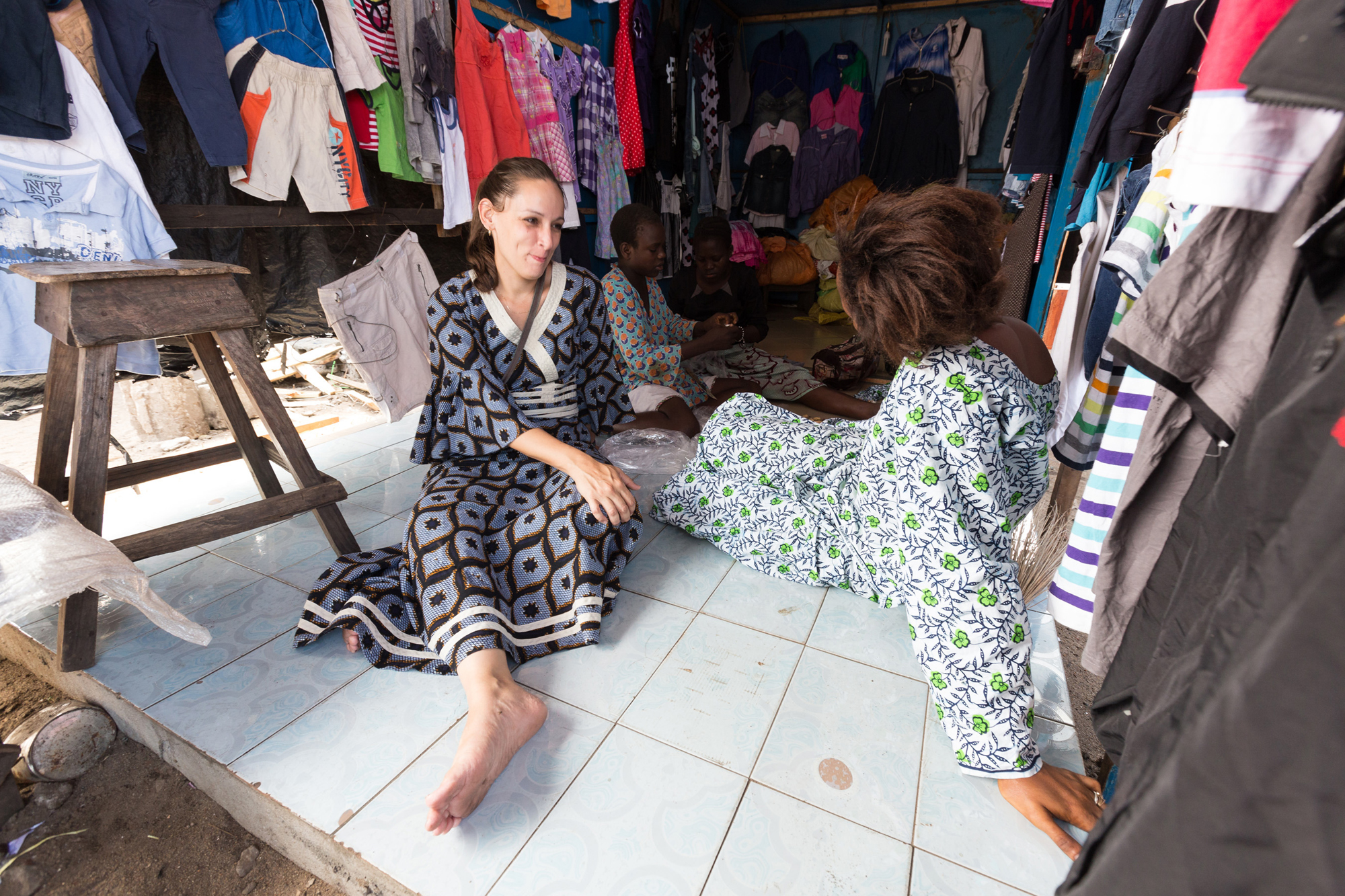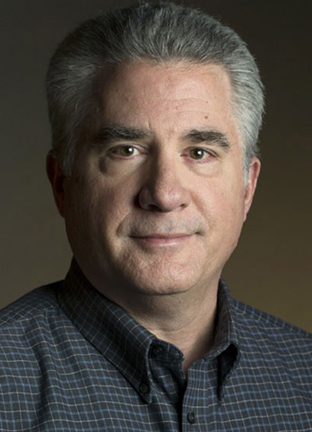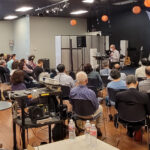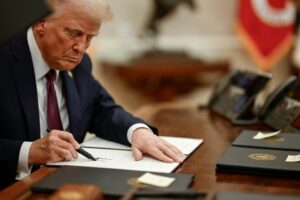
[SLIDESHOW=39478,39479,39480]EDITOR’S NOTE: Ivory Coast was the country of focus for the 2014 International Mission Study by Woman’s Missionary Union. Find resources to support the study at wmu.com/IMS and imb.org/ims.
Please see two related stories below this article.
ABIDJAN, Ivory Coast (BP) — International Mission Board missionary Heather McAfee told a story about a woman who came to her for prayer. The woman was worried about a snake in her house. McAfee asked if the snake was poisonous. “No,” the woman answered. McAfee asked if it was still in the house. “No,” the woman repeated. McAfee didn’t understand exactly what the problem was until later when an Ivorian friend explained that a snake in the house represents “serious evil.” The woman feared someone had cursed her.
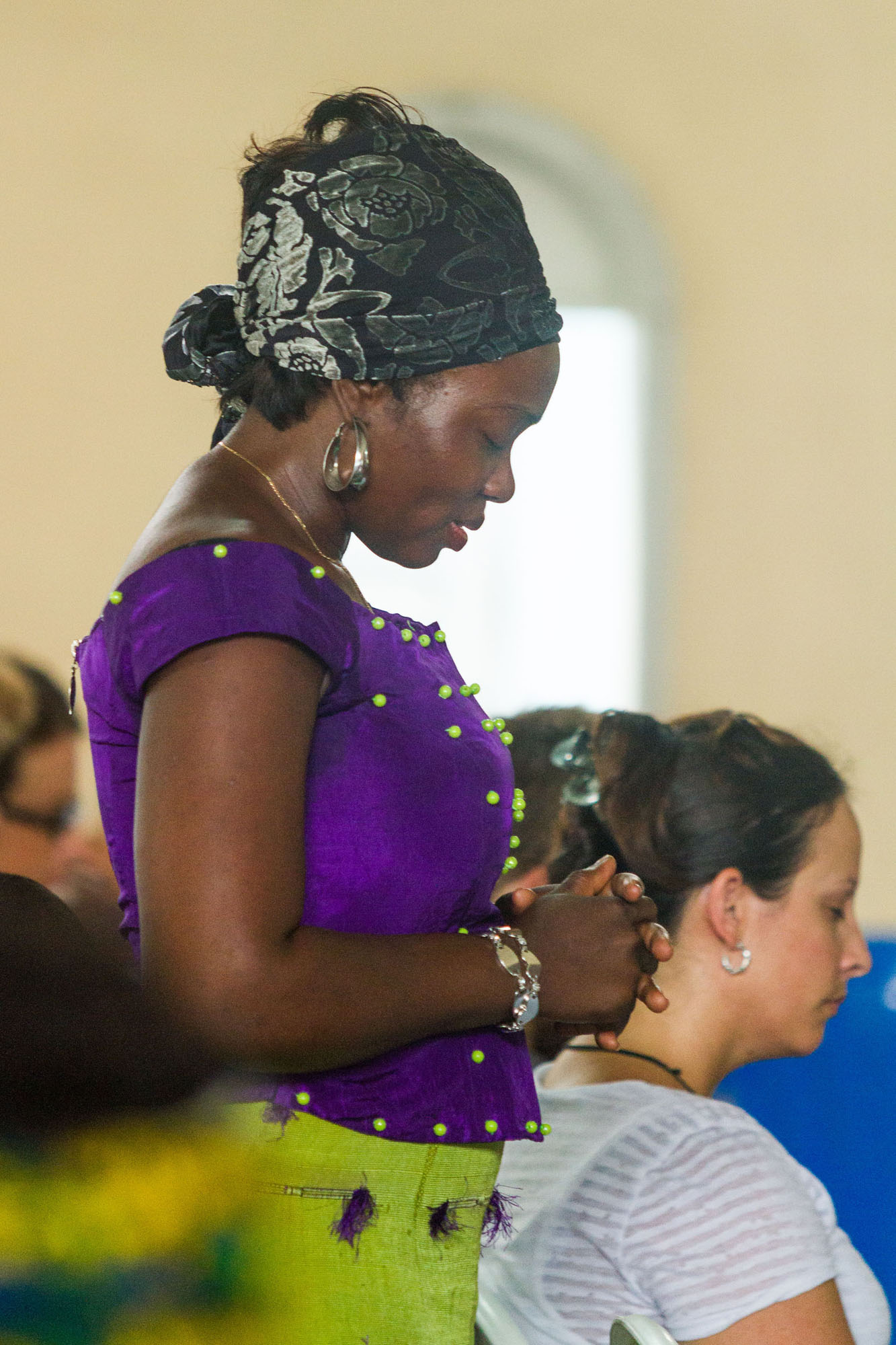 “The African is ‘profoundly, incurably a believer, a religious person,'” according to African author Tshishiku Tshibangu. “To him, religion is not just a set of beliefs but a way of life, the basis of culture, identity and moral values.” The author also said beliefs stemming from traditional tribal religions often underlie the spiritual understanding of those who outwardly embrace another religion such as Islam or Christianity. For example, an Ivorian says he follows Islam yet ties a magical charm on a string around his young son’s bare waist to ward off evil forces.
“The African is ‘profoundly, incurably a believer, a religious person,'” according to African author Tshishiku Tshibangu. “To him, religion is not just a set of beliefs but a way of life, the basis of culture, identity and moral values.” The author also said beliefs stemming from traditional tribal religions often underlie the spiritual understanding of those who outwardly embrace another religion such as Islam or Christianity. For example, an Ivorian says he follows Islam yet ties a magical charm on a string around his young son’s bare waist to ward off evil forces.
As with the vast amount of ethnic diversity in Ivory Coast, there is diversity in local beliefs among different tribal groups. Nevertheless, in African traditional tribal religions, some constants include belief in a supreme being and an invisible spirit world, as well as the ability to interact with this spirit world. The veneration of ancestors is widespread, as is the existence of good and evil spirits that can harm or help individuals. These spirits can inhabit the natural world in rivers, forests, stones, etc. Using magic for healings and curses is also a common thread.
IMB emeritus missionaries Ed and Greta Pinkston served in Ivory Coast for 34 years — 12 of those in Abidjan. They also worked in Daloa, northwest of Abidjan, among the Bete (Bay-tay) tribe. Throughout their years of service, they repeatedly saw this belief in — and fear of — spirits expressed in daily life, Greta Pinkston recalled.
“It was not unusual for sacrifices to be placed at the foot of huge trees, rocks, or thrown into large rivers,” she said. “We even saw sacrifices of eggs, feathers, bones, [and] rice piled into the middle of busy intersections in our town.” She remembered sacred forests where Ivorians would go for ceremonies and to place sacrifices.
Ed Pinkston described how traditional tribal religions influence people’s mindset in a paper he presented to a church-planting conference in Abidjan in 1991:
“In African Traditional Religion, … everything has a spiritual cause — sickness, success, failure, accidents, death, just as for the Western mind, everything has a natural cause. If a child died, we would ask, ‘What sickness killed him? How did he get it? Could he have been saved by adequate treatment?’ We might even have an autopsy to determine the cause of his death.
“Most Africans’ reaction would be ‘Who caused him to die? What enemy used sorcery against him? What did we do that would make someone living or some ancestor’s spirit or some other spirit want to kill our child?’ They might consult a charlatan [a diviner, a person who divines or declares something obscure or in the future] to determine who was responsible for the death.”
Greta Pinkston added that this reaction wouldn’t be limited to the uneducated.
“People who have college or [doctorate] degrees and who are well placed in business, government or the education field will go to diviners when things get tough or serious problems arise. These things hold a tight grip on people, and they live in fear, especially of the spirits of the ancestors.”
******************************
‘One city made up of 12 cities’
By Elaine Gaston
ABIDJAN, Ivory Coast (BP) — The Sunday service had finished at Belleville Baptist Church in Abobo, and worshippers were leaving for their walk home. Some lingered outside, talking together in the hot sun, while in the grassy field in front of the cinderblock building, children played.
Suddenly several women started singing. A drummer then began to beat out a rhythm with the harmonies. As the beat picked up, the women began to dance. They weren’t singing in French as they had with most of the worship songs earlier. They were singing a Baule praise song, said Heather McAfee, an International Mission Board urban church planter, along with husband Mike. Or at least she thought it was Baule because that’s the tribe of many of the women taking part in this spontaneous singing.
It’s one of the underlying realities of working in Abidjan. While French is the language of education and government, everyone has his own tribal affiliation and “heart” language. The Baule are a large group from central Ivory Coast. They are the largest subgroup of the Akan, which includes many other people groups. There are the Bete, the second largest group after the Baule. There are the Senufo, Lobi, Dan (also called Gio or Yakuba), Hausa, Malinke and Jula. The Mossi, the ethnic group the McAfees originally came to Africa to work with, are from Burkina Faso, but more than a million live in Ivory Coast. And the list goes on and on, all groups with their specific heritages, histories, religious traditions and languages.
Tribal affiliations matter
And though at first glance they may seem to merge together in Abidjan’s urban setting, the tribal affiliations are distinct and they matter. When Charles Kambou, a Lobi, married his wife, a Bete, her co-workers were surprised. The couple married in the midst of the civil war, and at the time, there was deep tension between the Lobi and Bete peoples.
“They were hating each other, these peoples,” Kambou explained. “But we are Christians.” During part of the wedding, he put on the traditional Bete clothing of his bride’s family, and his bride put on the Lobi clothing of his tribal affiliation. This act was highly symbolic, he said.
“To make the kind of perfect union, it’s like they adopted me as one of their own sons, so what is coming from them is not only their daughter that I’m taking as my wife but I’m also taking their customs, their clothes, their habits, their daily doings. I will submit myself to them.”
Language barrier
Fortunately Mike McAfee said he usually doesn’t have to worry too much about communicating with men in the various ethnic languages represented in Abidjan. He finds most men can speak French, the overarching language of the colonial past still used in schools throughout the country. Heather McAfee isn’t quite as fortunate though.
“If there’s anybody that’s not going to speak French, it’s probably going to be a [woman], and the reason is just the culture of the day,” Mike McAfee said. “They will send their boys to school — almost all the boys go to a French school. If they can’t afford for one [of their children] to go to school, most likely they’re going to choose not to send one of their daughters.”
Distinct atmosphere
Abidjan’s diversity is seen not only in its ethnic mix but also in the layout of the city, which, as in any large urban setting, has certain quarters with distinct atmospheres.
“The best [description] that I’ve got actually came from one of my African friends, who said, ‘Abidjan is just one city made up of 12 cities.’ You go up to Yopougon, which would be different than Le Plateau, and Deux Plateaux would be different than Marcory, and Marcory is different than Vridi, and Vridi is different than Koumassi,” Mike McAfee said.
Magnetic draw
As many other urban centers throughout Africa continue to grow, pulling in the population from the countryside, Abidjan is a magnetic draw to ethnic groups from all over Ivory Coast.
“There’s not a whole lot of things to do out in the bush, except farming,” Heather McAfee said. “When children get to university age, parents have to send them to the city. You put your kids through school because when you put your kids through school, they can take care of you [later]. … Even a low-paying job in the city is a lot better than a decent-paying job in the country. But in the city, the food costs are higher, the rent is higher. It just makes for a big mix of people, the cultures and languages.”
********************************
Migration to Ivory Coast: It’s a ‘jumble’ out there
By Elaine Gaston
ABIDJAN, Ivory Coast (BP) — Understanding Ivory Coast’s religious landscape is bound to be complicated with its roughly 60 languages and ethnicities. Patchy demographic information, swaths of people displaced by the turmoil of recent years and immigrants constantly flowing into Abidjan make it impossible to draw a conclusive “map” of the religious makeup of the country.
“For the most part, [people live] wherever anybody can find a place to live. … It doesn’t matter if they’re Muslim, Christian, Catholic, or animist,” said Mike McAfee, an International Mission Board urban church planter.
Broadly speaking, Muslims are concentrated in northern Ivory Coast, but the urban setting of Abidjan in the south is densely populated with Muslims as well. Martin W. Lewis, Stanford University lecturer and historical geographer, explained that in Ivory Coast, communities of faith are often mingled within one another; it is this mingling that contributes uncertainty when it comes to the demography of religion in the country.
Indeed estimates differ greatly for concentrations of adherents of Islam, Christianity (Roman Catholics and evangelicals are often lumped together), and animism or tribal religions and where they reside. Lewis showed, for example, that most sources estimate Ivory Coast’s Muslim population to be between 35 percent and 40 percent, but some sources put it at more than 60 percent. Sources reporting higher figures for Muslims argue that the large mostly Muslim immigrant population is systematically undercounted.
Christians account for 33 percent of Ivory Coast’s population, according to the CIA’s World Factbook. As for the animist population, The World Factbook reports a meager 12 percent of Ivorians practice an “indigenous” religion, but considering the syncretistic outlook of many Ivorians, Lewis said that figure is misleading.
“Many Ivorians are nominally Muslim or Christian yet remain profoundly animist in outlook and practices,” he wrote. Lewis suggested that it is easy to convert to a “universalistic religion such as Islam,” but converts may not entirely follow its precepts. “A knowledgeable acquaintance once described neighboring Guinea as ’90 percent Muslim and 90 percent animist,’ a joke that nonetheless conveys a grain of truth,” he wrote.
Lewis said it is “extraordinarily difficult” to map religion across West Africa, but Ivory Coast is particularly challenging because of the massive migration it has experienced in recent decades, which has enhanced diversity.
Avoiding religious tensions
Even with its jumbled religious makeup, Ivory Coast has avoided the religious tensions and violence some other African nations have experienced. The country’s constitution provides for religious freedom, and local governments encourage positive relationships with those of different religious beliefs. In Treichville — home to the port of Abidjan — Mayor François Amichia, who is a Christian, provides gifts of sugar and milk to Muslims during the holy month of Ramadan. The mayor’s office also contributes a substantial amount of money to the Muslim community to allow some residents to take part in pilgrimages to Mecca. His office equally supports Christians making pilgrimages to Israel.
The Christian Science Monitor published a story several years ago about a village of 2,000 to the north of Abidjan where Muslims, Christians and even animists joined together to build a Catholic church and a mosque. The Ivorian ambassador to the United Nations at that time, whose father was a village elder, contributed to the cost, as did then-President Félix Houphouët-Boigny. Professionals did the masonry, welding and carpentry on the buildings; village men, women and children, regardless of their religion, did the unskilled work.



